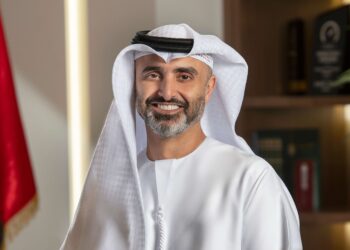The Gulf nations are rapidly embracing artificial intelligence (AI), pushing the boundaries of what’s possible in everything from smart infrastructure to healthcare innovation. With AI transforming industries across the GCC, there’s no shortage of ambition to lead in this technological frontier. However, as this digital wave surges, one pressing issue emerges: is the region equipped with the talent needed to harness the full potential of AI?
The demand for skilled AI professionals is soaring, but the supply is far from meeting the challenge. As the AI race intensifies, the gap between ambition and capability widens, making the stakes higher than ever.
The search for AI talent
A recent report by IBM revealed that 42 percent of Middle East CEOs struggle to fill key technology roles, highlighting the pressing need for skilled AI professionals. Additionally, an IBM Institute for Business Value study found that four out of five executives believe generative AI will fundamentally change employee roles and skills, further intensifying the competition for top talent.
“Businesses in the Middle East are increasingly turning to AI to boost their operational efficiency and elevate customer experiences. The IBM Global AI Adoption Index reveals that 65 percent of IT professionals in the UAE have accelerated AI adoption over the past two years, in line with a broader global trend. This has created a heightened demand for specialised skills and resulted in a widening skills gap, posing a significant challenge to companies,” says Pinar Yucealp, Chief Human Resources Officer, IBM Middle East & Africa.
Yucealp further highlights that the rise of generative AI has expanded the scope of applications, leading to the emergence of new roles, such as AI ethicists and machine learning engineers.

This surging appetite for AI expertise is not only a byproduct of technological advancement but is also being turbocharged by monumental investments in the field. Saudi Arabia’s $40 billion AI fund and Microsoft’s $1.5 billion infusion into the UAE’s G42 tech ecosystem are prime examples of the substantial financial commitments shaping the AI job market.
“The increased demand is for bot h business roles with AI skills—needed to set strategic direction and define relevant use cases—and AI technology specialists, including machine learning engineers, data scientists, AI researchers, and platform experts,” explains Rami Mourtada, Partner and Director at BCG.
He adds, “Both talent groups are in short supply globally and regionally, across the number of qualified candidates and the depth of expertise. This situation requires a fresh, nuanced approach to talent development and acquisition in the region.”
Challenges in cultivating and retaining AI talent
Despite the best efforts, cultivating and retaining AI talent remains a formidable challenge. The competition for AI professionals is fierce, not just within the GCC but globally. As companies in the region work to build a workforce capable of leading AI initiatives, they must also address the unique challenges that come with it.
One of the biggest barriers to retaining AI talent is cultivating a unified culture among teams spread across different geographies. It’s not just about recruiting top AI talent; it’s also about training them, retaining them, and offering clear career paths to keep them engaged.
“Beyond upskilling, technology is altering certain tasks, and companies must provide opportunities for reskilling individuals who can contribute value from other areas. In the IT industry, the challenge of continuously training professionals is even more urgent. In a challenging era like the one we are living in, organisations must be agents of change, empowering talent to have positive impacts both internally and externally,” says Federico Pienovi, Chief Business Officer & CEO for APAC & MENA, Globant.

Pienovi also underscores the importance of providing existing employees with reskilling opportunities, enabling them to acquire valuable AI skills and contribute to other areas. “Organisations must be agents of change, empowering talent to have positive impacts both internally and externally,” he adds.
As AI continues to evolve, the skills required to work with it are also changing rapidly. The World Economic Forum predicted that 50 percent of employees would need to reskill by 2025, a forecast proving accurate with the rise of generative AI. For organisations, upskilling their existing workforce is not just a retention strategy but a necessity for staying competitive.
“Attracting and retaining talent with the right AI skills is critical, yet it can feel like a race against time. To address this, we at IBM are not only actively recruiting AI talent through various channels but are also heavily investing in upskilling and reskilling programs,” says Yucealp.
AI itself can be instrumental in mapping existing competencies to future requirements, creating tailored reskilling pathways that align with organisational goals. “This approach enhances skills alignment, talent mobility, and retention while reducing turnover. AI-driven learning tools support continuous upskilling, meeting internal talent metrics and offering a comprehensive employee experience. This includes growth opportunities, mentorship, gig projects, and talent cohorts, empowering employees and maintaining a dynamic skills inventory for the organisation,” she adds.

The value of collaboration
So, how does the GCC address these hurdles? The answer lies in collaboration. Technology companies, governments, and academic institutions all have critical roles to play. The synergy between these entities brings unique strengths to the table that, when combined, can create a robust ecosystem for developing AI expertise.
“To cultivate AI talent, technology companies, governments, and academic institutions should collaborate to develop comprehensive approaches that include specialised educational programmes, research partnerships, and funding initiatives,” says Walid Yehia, Managing Director, UAE, Dell Technologies.
“By aligning curricula with industry needs, offering internships and apprenticeships, and supporting innovation hubs, they can ensure a steady pipeline of skilled professionals. Additionally, businesses must integrate technology, talent, and culture to drive innovation. Key skills in AI include applying it within business processes, communicating complex concepts to non-technical audiences, and addressing ethical considerations.”

To bolster the AI talent pipeline in the Middle East, policymakers and educators should also implement a comprehensive strategy that tackles both urgent demands and the development of sustainable, long-term skills.
According to Mourtada from BCG, tech companies, policymakers, and educators should focus on four key areas to improve the talent ecosystem. “Firstly, they need to enhance AI-focused curricula, including the integration of AI and machine learning courses into existing programmes,” he says.
“Secondly, investing in research and development can foster innovation, potentially through funding AI research centres or supporting collaborative projects. Thirdly, creating incentives for AI startups, such as grants or resource access, can help build a thriving ecosystem. Finally, ensuring a supportive regulatory environment is crucial for sustainable growth in the AI sector, balancing innovation with ethical considerations and data privacy,” explains Mourtada.
As the GCC strives to establish itself as a frontrunner in AI, the task of building and retaining a skilled workforce grows increasingly crucial. The region’s success in the AI revolution hinges not only on its technological investments but also on its capacity to nurture and empower talent.
“In the AI era, it’s crucial for leaders to recognise that a robust talent advancement framework goes beyond standard training and development. A proactive approach to talent development must include a comprehensive plan for continuous learning. This will not only help prepare for challenges but also empower individuals to thrive in this transformative environment. AI should be prioritised at every level to foster innovation, from education to industry,” says Yehia.










Discussion about this post